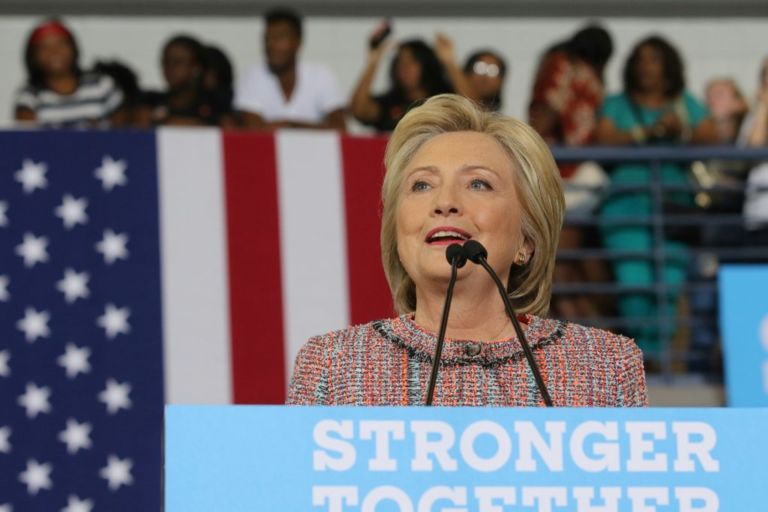Before there was ObamaCare, North Carolina had its own individual mandate. In 2007, the North Carolina legislature mandated that electricity customers buy electricity from renewable energy sources such as solar and wind power.
The law requiring this mandate, known as SB 3, in some ways is even worse than mandating the purchase of health care. At least with the ObamaCare mandate, you actually would receive health insurance.
Under SB 3’s energy mandate, North Carolinians will be paying, in part, to receive nothing in return. Since utility companies can buy nearly half of the required renewable energy from outside the state, North Carolinians will be paying an energy tax to subsidize electricity for people in California and other states but won’t actually receive the electricity themselves.
SB 3 is a mandate not to benefit North Carolinians, but to benefit the solar and wind industries, as can be seen by the requirement to subsidize out-of-state renewable energy companies.
SB 3 also is a mandate imposed on North Carolina that harms its already weak economy. Since renewable energy sources are so much more expensive than other sources of electricity, electricity prices are driven up, thereby hurting the financial health of families and businesses.
According to the United States Energy Information Administration, new solar power is five times more expensive than new natural gas. New offshore wind power is about 2.5 times more expensive than new natural gas.
Both solar and wind power are unreliable sources of electricity. The sun doesn’t always shine, and the wind doesn’t always blow. As a result, these renewable sources have limited value because they can’t meet baseload generation requirements (the constant demand for electricity) nor can they meet peak demand, because an electricity grid manager, absent magic, can’t force the sun to shine on command.
Further, these sources must be backed up by conventional sources of power, such as natural gas because renewable sources are so unreliable. These limitations are critical to understand because we can’t simply get rid of a coal plant and then expect to replace that plant with wind power. These renewable sources aren’t interchangeable with conventional sources of power.
The Beacon Hill Institute, a prestigious economic institute at Suffolk University, analyzed the impact of SB 3’s individual mandate. Their analysis suggests that SB 3 would cut 3,275 jobs by 2014. In other words, over the next three years, North Carolinians would have those jobs, but because of SB 3, they will never be created.
SB 3 will cut $44 million in disposable income by 2014. That means you and your family will have less money to enjoy in your daily lives. State economic output as measured in state Gross Domestic Product (GDP) will be $116 million less than it would have been without the mandate.
Even if you support renewable energy, there’s no justification to mandate it. The state shouldn’t mandate any specific type of electricity sources, be it solar or coal. Utility companies should generate electricity using the lowest-cost and most reliable sources of electricity, whatever that may be.
For those who think SB 3 is designed to address global warming and specifically carbon dioxide emissions, the notion would make sense if the law mandated the use of nuclear power, which doesn’t emit carbon dioxide. SB 3 doesn’t mandate nuclear power, however, nor does it even allow the use of most hydropower, a renewable energy source that has proven to be effective.
Instead, SB 3 is a massive mandate and tax increase on North Carolinians — a mandate that is hurting the state economy — all to provide special subsidies to certain special interests within the energy community. If these energy sources were so marketable, there would be no need to create this individual mandate.
The North Carolina legislature needs to repeal SB 3. A recently introduced House bill (HB 431) would take this much-needed step. Only citizens can make a repeal happen, though. Utility companies, like other special interests, favor SB 3 because the law has many "goodies" in it for them. The issue of repealing SB 3 is truly a question of whether citizens and the state economy are more important than special interests.
Voter ID Dead?
House Republicans are reportedly drafting a new version of the voter ID bill that would allow voters to show a voter registration card in lieu of a valid photo ID.
As I have written before, a voter registration card is an inadequate means of establishing identity. The proposal would apparently require two poll workers to determine if the signature provided at the polls matches the signature on the registration card.
Even if the signatures match, that wouldn’t mean the person is eligible to vote (it is easy to get voter registration cards) nor would it prevent people from voting in multiple locations.
Further, the idea of training poll workers to make such decisions is a nightmare, as would be the inevitable problems of having poll workers be the gatekeepers as to who could vote. This type of system would be conducive to abuse because of the subjective nature of determining what signatures match.
This "compromise" is supposed to appease groups that object to requiring photo IDs, but as the article suggests (and as common sense would tell us), nothing will persuade those are who making the "poll tax" type of arguments that have been thoroughly debunked.
The Republicans should stick to their guns and push a photo ID bill. Allowing a voter registration card would make it a pointless bill and would kill a voter ID bill this session.
Click here for the Rights & Regulation Update archive.


